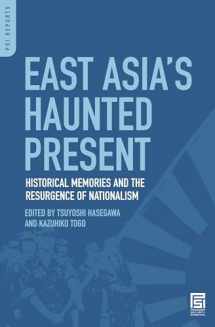
East Asia's Haunted Present: Historical Memories and the Resurgence of Nationalism (PSI Reports)
Book details
Summary
Description
This collection of essays by leading scholars from Japan, China, South Korea, and the United States examines how and why bitter historical memories have resurfaced in recent years as freshly virulent and contentious issues between Japan and its neighbors―especially China and South Korea. Moreover, it seeks to identify what set of conditions and what sequence of measures will enable these modern nations to manage, palliate, and exorcise the wrongs of the past in a spirit of reconciliation, so that the dangerous growth of nationalist resentments and revanchism can be checked.
Comfort women … the Yasukuni Shrine … the history textbook controversies … The single sorest issue confronting East Asia today is the growing animosity and conflict between Japan and its neighbors―especially China and South Korea―over their respective and collective memories of Japan's pre-1945 militaristic aggression, oppression, and atrocities. Even as East Asia has established itself as one of the most vibrant economic regions of the world, the strident nationalisms that have emerged here in the post-Cold War period have exacerbated historical grievances and heightened the international tensions that separate Japan from China and South Korea, blocking the development of an international system based on comity and cooperation.


We would LOVE it if you could help us and other readers by reviewing the book
Book review



